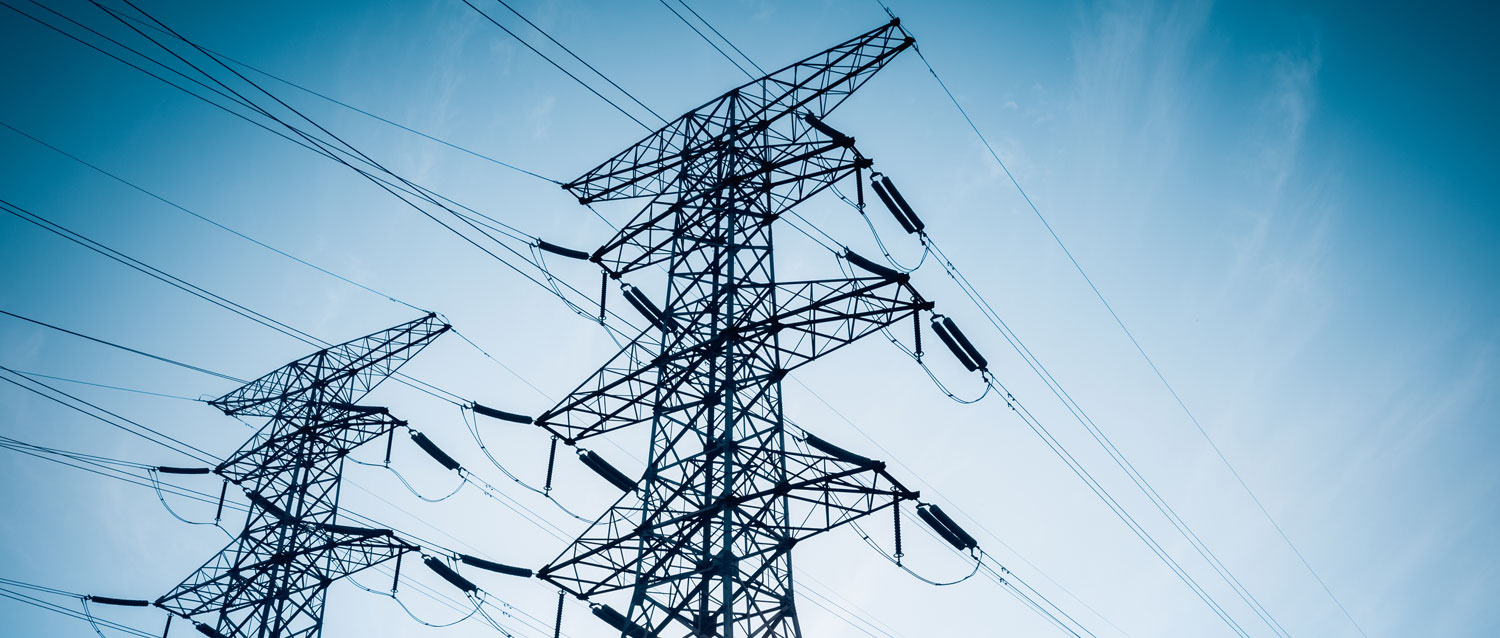
Why Are Energy Prices Going Up?
If you read our last blog, the theme of simplicity and complexity abounds as we aim to answer this question. So, where do we start? Let’s start with setting the scene, because we are asking the question during an unprecedented time, when energy prices are in the news almost daily.
The Energy Crunch?
I can only describe the current crisis as an ‘energy crunch’ because it has created shockwaves not seen in households and business, since the ‘credit crunch’ which shook the Financial Services markets and UK economy back in 2007.
The price rises we have seen recently have been unprecedented, with the wholesale cost of gas and electricity having skyrocketed. Vulnerable domestic customers have been left worried about staying warm in the winter, businesses that were exposed fearing for survival, and let’s not forget, a shortage of fertilizer causing headaches for farmers.
I will try to address the factors causing the recent spike in prices in this blog, however, it is also important to point out that price rises have been happening for the last 6 years or so, particularly electricity.
Differences between Gas & Electricity
Electricity bills are made up of commodity (wholesale costs) and also “non-commodity” costs, for networks, cabling and various ‘green’ taxes. Non-commodity costs have been increasing continually over recent years, with increases forecasted to continue.
Gas bills don’t include the same ‘non-commodity costs’ and contain far fewer green taxes, despite being a fossil fuel! Therefore price fluctuations of gas bills, are directly linked to wholesale costs. Whilst gas prices have fluctuated up and down over recent years, prices are currently spiking to astronomical levels, never seen before!
The price of gas has skyrocketed, due to the increased demand and shortage of supplies, but this has been brewing with increasing intensity over the past few months.
Electricity on the other hand has been increasing for a long time, largely driven by non-commodity costs, and now it is being further impacted by the recent huge increase in gas prices – a double whammy!
What does Gas have to do with Electricity, & what about Renewables?
A large percentage of electricity in the UK is generated by natural gas and the majority of that comes from other countries exposed to global gas prices..
The UK is doing well in terms of renewable generation growth, with big increases in solar and wind-generated power capacity, yet this can fluctuate depending upon the weather.
The UK has made great progress, largely phasing out coal, the most polluting of fuels, and this has been largely replaced by Gas, a fossil fuel, but less polluting than coal!
In 2020, renewables made up c43% of UK electricity generation, beating fossil fuels for the first time, helped by reduced demand because of the pandemic.
Even in optimum conditions, the UK relies heavily on burning gas (c40%) to generate enough electricity to supply us all. The other significant portion is nuclear (c20%).
The brewing gas crisis, impact on electricity has further been compounded by renewable generation being well below average over the last few months, meaning that even more gas has been needed to generate electricity.
When it comes to supply and price, natural gas is driven by availability and demand like all ‘commodities’, and the current conditions are a perfect storm.
Doesn’t the UK have Gas storage?
Unfortunately, successive UK Governments have failed to invest in the UK Gas infrastructure and storage systems.
The COVID-19 lockdown also pushed back a lot of maintenance to 2021 which affected supply whilst demand was still restoring.
The closure of the UK’s largest gas storage site by British Gas owner Centrica in 2017, due to the facility’s age and state of disrepair creating safety risk, left the UK massively exposed to price volatility.
In addition, upstream supply issues, unforeseen repair works, and project delays all further tightened the global gas market.
Here are some reasons why the UK is particularly badly affected:
- The UK is one of Europe’s biggest users of natural gas, both for direct use in heating, cooking and industrial processes, and for generation of electricity.
- It was the least windy summer in the UK since 1961, meaning supplies of renewable energy were down.
- A recent fire at the National Grid site in Kent, closed a power cable supplying electricity from France, further reducing supply.
- LNG (liquid natural gas) supplies from the global markets have been increasingly demanded by China and Latin America, leaving European economies, particularly the UK exposed and vulnerable.
- The UK’s largest gas storage facility ‘rough’, is a former facility situated on the east coast of England. In June 2017, Centrica Storage Ltd, Centrica owned British Gas and this is ironically an American company who announced that gas injection and storage would cease.
- Due to its sparse storage facilities, the UK has been increasingly operating a “just-in-time model”, which means it’s more affected by short-term price fluctuations in the wholesale gas market.
- A planned new Gas supply into Europe from Russia ‘Nord Stream 2 Pipeline’ has been delayed due to political tensions.
How does this affect me?
This all depends upon when your contract ends, or whether you are on a variable rate, or (for corporate businesses) a ‘flex’ or ‘pass-through’ contract.
Unfortunately, if you did not have a good consultant like Jonstar, or chose to ignore the advice to sign up early over the last year, or indeed are one of those businesses who have a particular profile where supplier offers have been restricted, you could be stuck between a rock and a hard place right now.
Those most at risk are:
- SME business energy customers who are on a variable tariff, the kind offered by Bulb and Utility Warehouse.
- Business energy users who have a particular profile where supplier offers have been restricted due to COVID impacts on supplier ‘criteria’, such as hospitality, or multi-site, (each with a small consumption profile).
- Large business energy users on a ‘flex’ or ‘pass-through’ contract.
- Business energy users with contracts ending very soon.
- IS THIS YOU? Contact us today, we will endeavour to answer 24/7 🙂
What about the Energy Price Cap?
This only applies to domestic customers, unfortunately for business, yet for business, the plot thickens!
The price cap is the maximum price suppliers can charge domestic customers on a standard tariff or prepayment meter for their energy costs, to protect consumers from energy suppliers increasing bills without a limit.
This increased on the 1st October 2021 but the rate was set well before that point, during very different market conditions, it is already one which is ‘too low’ compared to the current wholesale prices.
This price cap was set up, ostensibly to stop energy suppliers from ripping off the general public if they didn’t constantly switch suppliers. It can be set every 6 months and the current rate was determined a while ago.
The current circumstances have led to many suppliers going bust and many others stopping new offers or restricting taking on new business energy customers. The price cap looks like an ill-conceived regulatory tool, which has essentially left many suppliers at risk.
We have seen business energy customers whose supplier has ceased trading, being placed on extremely high ‘deemed’ rates because they are not protected by a price cap. Sadly, we expect to see more suppliers go bust, with some good business suppliers currently looking unsteady.
What can be done?
Plan ahead! Working with a trusted independent partner, such as Jonstar, ensures you can take advantage of favourable market conditions, and buy energy a year or more in advance where suitable.
Invest time to develop an energy strategy, explore renewables and embrace energy efficiency, look at grants, tax reliefs and other funding to support.
Energy Efficiency
- Stop wasting energy! Not only are we in the midst of a climate emergency and need to massively reduce emissions, but the current level of prices should also give a laser focus on the true value of energy. The most expensive energy is that which we waste!
- Jonstar can support with energy efficiency measures, such as reviewing Heat, Ventilation & Air Conditioning (HVAC).
- Some of the most effective measures are free – try wearing a jumper and turning down the thermostat by a degree – this can save a fortune.
- Behavioural change is massively crucial, and it starts with engaging your business teams, talking about the climate crisis and the energy costs, meaning that business as usual is no longer safe and that by working together to help the business to save money and the planet, everyone will have a better future
- New normal has been a buzzword, the post-pandemic era is one where climate and NetZero factors are aligning with capitalism factors. Making money and saving money is now much more aligned. Being better for the planet is better for business.
- Technology is rapidly evolving, and grants are also available, we can explore this with you to look at ways that your building and operations can become more efficient.
Self Generation & Energy Efficient Technology
- Solar power is now even cheaper – because once you have paid for it, the electricity is free! ROI against buying electricity from the grid is even quicker when many businesses are looking at 30p/kWh instead of 18p, for example.
- Battery storage is becoming more affordable and there is an opportunity for large energy users to invest in this and other ‘behind the meter’ technologies, with big commercial advantages available.
- Air and ground source heat pumps may be beneficial for your business.
- Funded options are available, depending upon circumstances.
Summary
Given this information, it’s important that people do everything they can to seek advice now, before the supply issues become even tighter and make finding the right solution even more difficult.
The energy crunch is negatively impacting vulnerable customers and many businesses who are the backbone of the UK economy. The only positives I can see are that it will focus minds on saving energy, with the climate emergency and the pocket now demanding even more loudly that we all get energy efficiency higher on the priority list.
The importance of having an energy strategy that is fit for the present era, should be even more clear for all and with other pressures increasing, Jonstar is pleased to support our business energy customers with staying ahead of the curve.
Get in touch for advice on saving money, investing in greener methods for generating energy, to help future proof your business.
Save money and the planet today. Jonstar Energy Brokers has a friendly team that cares, with bespoke information relevant to you!
Contact us for a friendly partner to help with your energy strategy.



